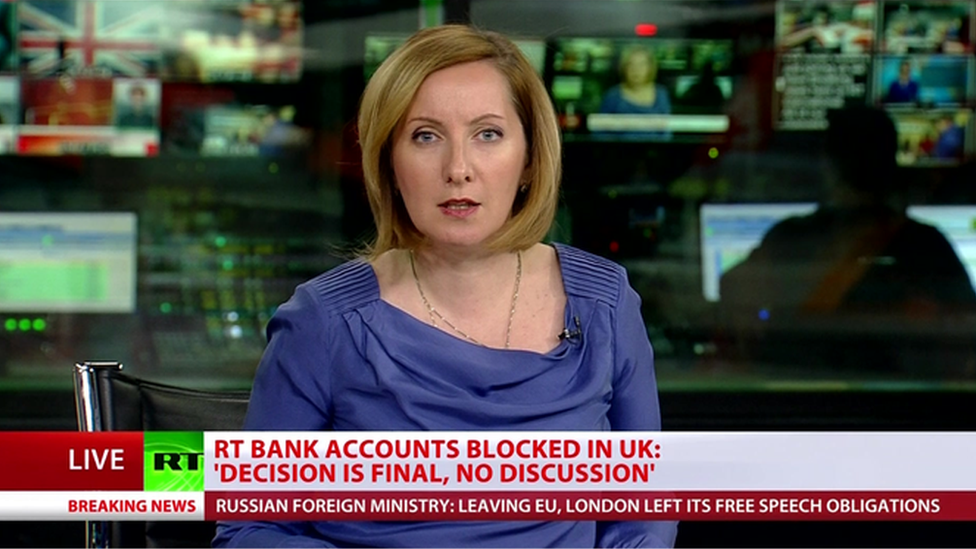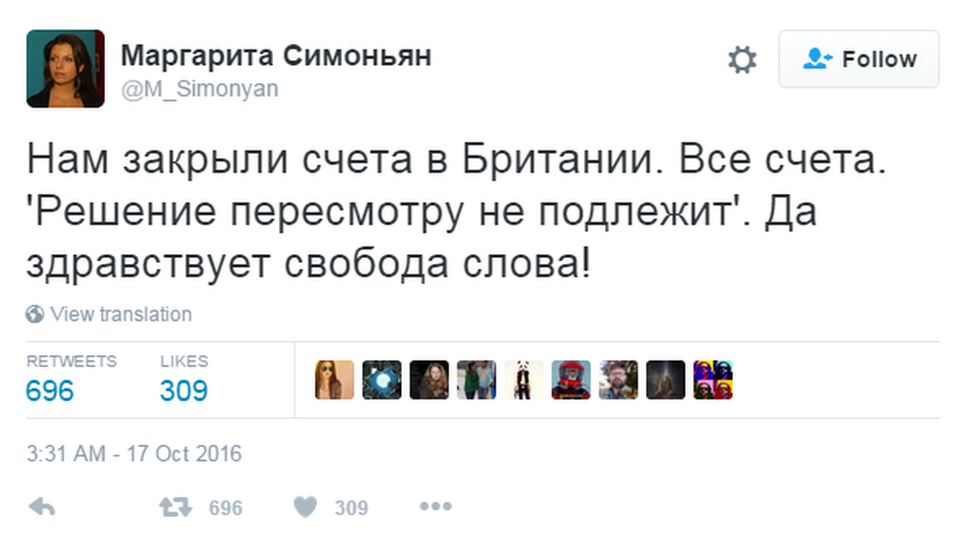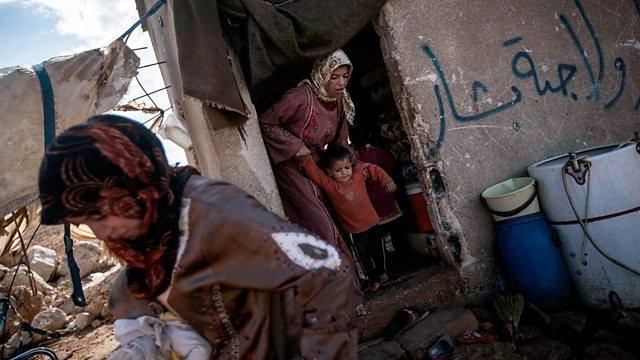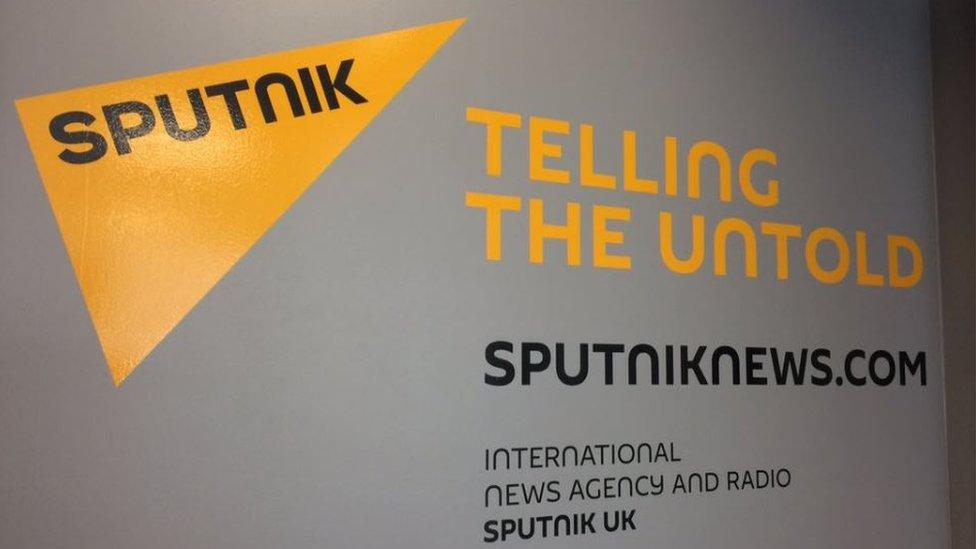RT: NatWest to close Russian channel's UK bank accounts
- Published

Broadcaster RT is backed by the Kremlin
NatWest bank is to close the accounts of Russia's state-run broadcaster, RT.
Editor-in-chief Margarita Simonyan tweeted, external: "They've closed our accounts in Britain. All our accounts. 'The decision is not subject to review.' Praise be to freedom of speech!"
The bank said the decision was "not taken lightly" and that the accounts were "still operative" at present.
An MP from Russia's ruling party has said its parliament will demand an explanation from the UK.
RT says the entire Royal Bank of Scotland (RBS) Group, of which NatWest is part, is refusing to provide its services.
The broadcaster, previously known as Russia Today, says NatWest wrote to its London office saying: "We have recently undertaken a review of your banking arrangements with us and reached the conclusion that we will no longer provide these facilities."

RT editor-in-chief Margarita Simonyan tweeted: "They've closed our accounts in Britain"
Are we entering a new Cold War?
Ofcom backs BBC in Russian TV case
Scots outlet for Russian news agency
The bank, RT said, had insisted its decision was final and it was "not prepared to enter into any discussion."
A letter posted online by the channel appears to show that the freeze is not in effect yet. It warns that banking facilities will be "cancelled and closed" on 12 December.
RBS said in a statement: "These decisions are not taken lightly. We are reviewing the situation and are contacting the customer to discuss this further. The bank accounts remain open and are still operative."
The UK Treasury said it does not comment on individual cases, but added that no new sanctions or obligations relating to Russia had been imposed on British banks by the government since February 2015.
A spokeswoman for Prime Minister Theresa May said: "It's a matter for the bank, and it's for them to decide who they offer services to based on their own risk appetite."

Reaction in Russia
MP Sergei Zheleznyak, from the ruling United Russia party, told the privately owned Interfax news agency: "We will be demanding an explanation from Britain's official authorities in connection with this situation."
Mr Zheleznyak, who sits on the international affairs committee of the State Duma (parliament's lower house), called NatWest's refusal to offer its banking services "outrageous" and "an infringement of the rights of journalists".
RT chief Ms Simonyan said the closure included the personal accounts of some senior staff working in the UK.
She told Russian state media: "They haven't explained the reasons and I think they can't explain them because there can't be any reasons. We have an absolutely transparent operation there, absolutely transparent funding. There have never been any complaints in this regard at all.
"They have failed to defeat us by simply vilifying us, by picking on our broadcast, so they decided to try the banking flank: 'Try broadcasting when all your accounts have been closed.' Yet we will try."


NatWest appears to have given RT a month's notice about the freezing of its accounts
RT, which is run by the Kremlin, has previously been accused of biased reporting and found in breach of Ofcom regulations.
The UK broadcasting regulator criticised a programme in which RT claimed the BBC had "staged" a chemical weapons attack for a news report on Syria.
Ofcom ruled that parts of the RT programme were "materially misleading".
Russian media outlets have made inroads into the UK recently.
The state-funded Sputnik news agency set up in Edinburgh in August to broadcast live radio programmes from Scotland. It said its goal was "telling the untold" to Scottish and UK audiences, although critics say it will act as a Kremlin mouthpiece.
- Published17 October 2016
- Published21 September 2015

- Published10 August 2016
